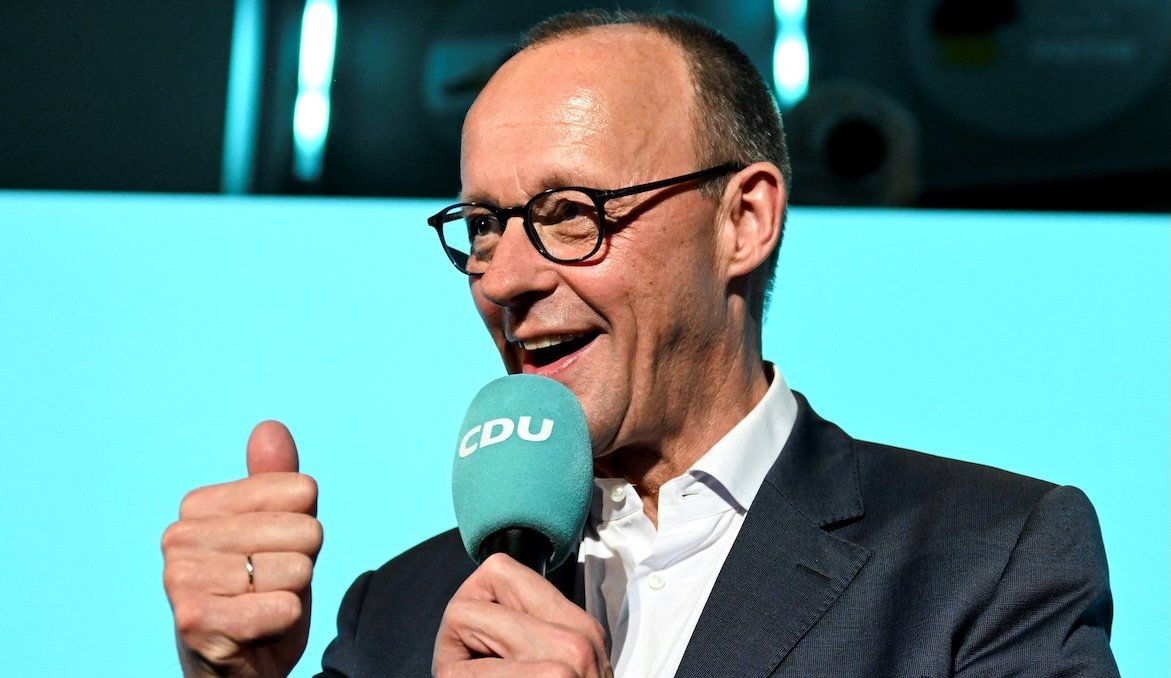As expected, the conservative Christian Democratic Union and its sister party, the Christian Social Union, came out on top in Germany’s election on Sunday with 28.6% of the vote. But the biggest celebrations were held by those supporting the far-right Alternative for Germany, or AfD, which scored a second-place finish with 20.8%, doubling its share of the vote since the last election. It beat the centrist SPD’s 16.4% and the Greens’ 11.6%.
The future coalition for the CDU/CSU hung on whether two minor parties, the center-right Free Democrats, aka FDP, and the hard-left Alliance Sahra Wagenknecht, or BSW, made the 5% threshold necessary to have representation in parliament. Preliminary results show they did not – at 4.3% and 4.97%, respectively, but BSW has said it will look into legal avenues to have the results reexamined because of its near miss. If the results stand, it means the CDU/CSU and the SPD will most likely form a “grand coalition” and not be beholden to a third coalition partner, which would have complicated negotiations and produced a less stable coalition.
What contributed to AfD’s success? The far right’s hard anti-migrant stance was reinforced by four terror attacks in the past two months, including one hours before the start of the Munich Security Conference on Feb. 14 and another on Feb. 22, the day before the vote, when a Syrian migrant stabbed a Spanish tourist at the Holocaust Memorial in Berlin. The party was also endorsed by Elon Musk, who told Germans to “move beyond past [World War II] guilt” during the campaign. In a post Sunday on Truth Social, US President Donald Trump said of the results, “This is a great day for Germany.”
What’s next? CDU leader Freidrich Merz promised to quickly form a coalition government and will become chancellor, adding that “We fought a tough election campaign about important topics … now we will talk to each other.” Merz said aims to strengthen Europe so it can “achieve real independence from the US.”
Germany’s “firewall,” an agreement among the traditional mainstream parties to shut AfD out of government coalitions, is expected to hold for now, but that could change in a future election. With the backing of one in five German voters, Alice Elisabeth Weidel, co-chair of the AfD, declared her party had gone “mainstream.” “Our hand remains outstretched to form a government,” she said after the results. Should the conservatives choose to govern with left-wing parties rather than the AfD, she claimed, “next time we’ll come first.”
